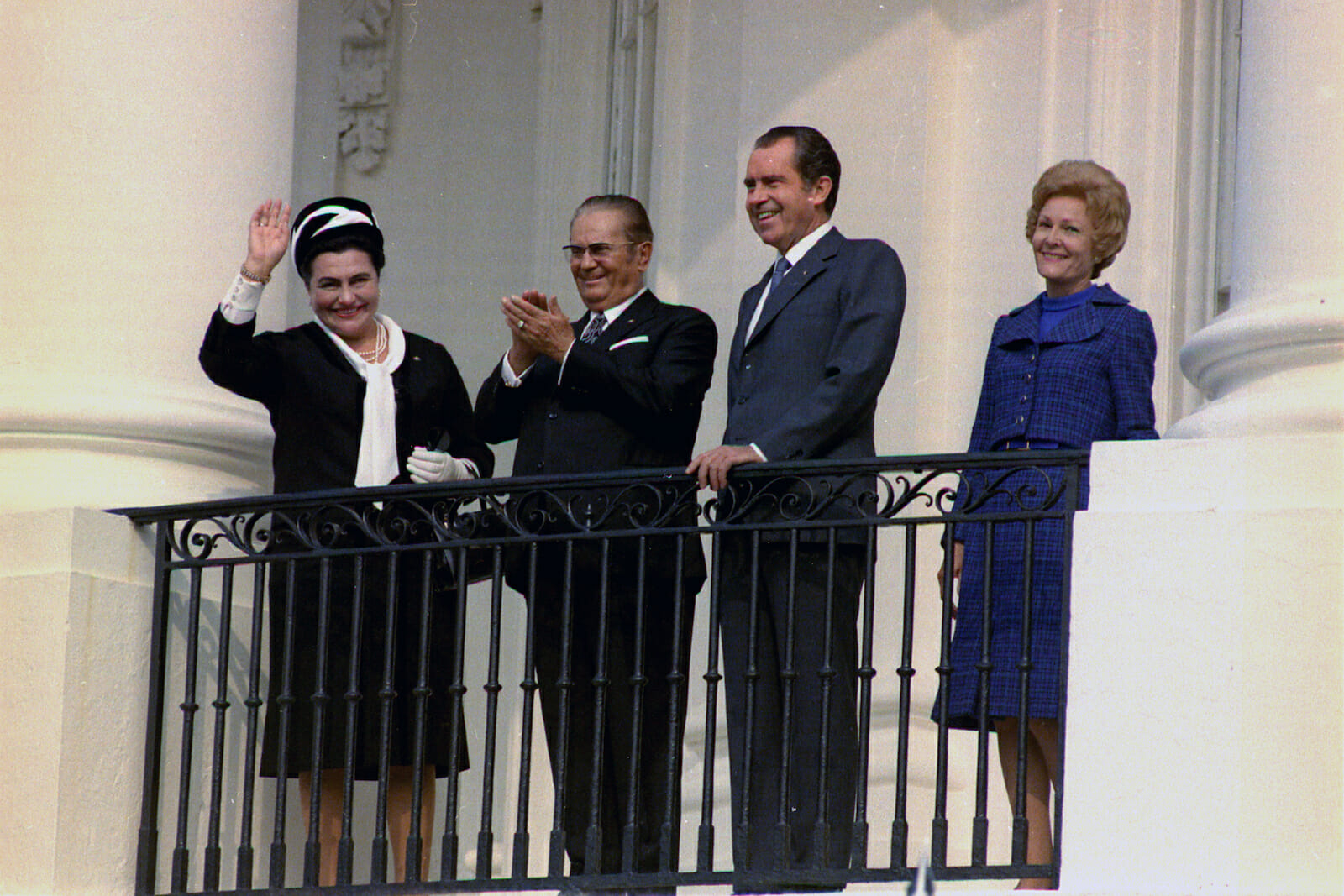
Culture
Tito’s Shield: Jovanka Broz and Yugoslavia’s Memory
Jovanka Broz is dead. Her legacy, like so much in the former Yugoslavia, was a troubled one. It is mournful, heavy with a blanket of nostalgia. “With Broz’s death,” cited Serbian Prime Minister Ivica Dačić, “we are left without one of the most reliable witnesses of our former country’s history.” He also acknowledged the other side of the matter: the vengeful “historical injustice” done to Broz.
Broz was one of those extraordinary creatures made extraordinary by history. She was born Jovanka Budisavljević in December 1924 in Lika, Croatia. She joined the partisans at the age of 17, serving till the end of the Second World War in 1945. In 1952, she married Josip Broz, known in the annals as Tito, the mastermind of the modern Yugoslavian state, a key leader of the Non-aligned movement. She remained the state’s first lady for almost three decades, living a life of ostentation as her husband straddled the Cold War divide.
Broz suffered with the country she and her husband presided over. She became effectively stateless at the destruction of the Yugoslavian Socialist federation in the 1990s. She was instrumentally forgotten via state orchestrated amnesia. A veil of silence was drawn around her. Tito himself lost his heroic lustre as the bodies started piling up, with historical scores being settled in bloody fashion. “Brotherhood and unity” had to be replaced by the ethnic sloganeering and patriotic froth of seven new countries.
Broz proved something of a buffer against mania and influence. For that reason, she had to be marginalised by the party elite suspicious of her influence. Repeated efforts were made to do so. In the late 1970s, as Tito slid into a realm of dementia and disorienting illness, he took the lead in isolating Broz after being convinced his security was at stake. There were rumours that she had been involved in intrigue behind several military appointments. Like an oriental grand vizier, Tito tended to fear for his welfare from those nearest him.
On Tito’s death in 1980 Broz was deemed persona non grata. Widows of distinguished statesmen are often seen to be the cherished link to the past. In Broz’s case, she was made a special example of the state’s internalised paranoia: excluded from public life, made an effective prisoner of the state, deprived of a passport and identification, kept in a crumbling state-owned villa in the Belgrade suburb of Dedinje. Armed guards kept vigil, monitoring her movements around the clock.
It became common knowledge that her residence lacked basic comforts, including heating. Tito’s widow was condemned to freeze. “I remember that it was minus 11 (Celsius) outside and there was no heating in the house,” recalled Serbian Trade Minister Rasim Ljajić on visiting Broz in 2005.
In 2009, in a rare interview with the Politika daily, she spoke of how the authorities swooped in at the moment of her husband’s death. “They chased me out…in my nightgown, without anything, not allowing me even to take a photo of the two of us or a letter, a book.” The authorities were swift, confiscating the couple’s property even as Tito’s body was barely cold. The stash, given Tito’s extensive international travelling and tribute, would have been extensive and to this day much of it remains unaccounted for.
“They wanted to settle accounts with Tito, by accusing me of preparing a plot against him.” With his death, she was to be entombed from public life, that chapter closed.
Now that she is finally dead, Broz’s request to be buried next to Tito is being considered. According to Dačić, “we are willing to accept her and her family’s request.” The logistics, however, will be problematic given the way Tito’s House of Flowers was constructed, assuming its own sacral powers and architectural impregnability.
The dead cannot plot coups. Their image is at the mercy of the living. They can be restored, revered and admired once they have bitten the dust. Condolences and nods of respect will be plenty for Broz. But they will be tainted by disingenuousness. When alive, she was treated as the refuse of memory, undeserving of even the most basic of amenities. That is the symbolism of Yugoslavia – a state that came from seed that went to seed, and perhaps something to be least ashamed of.
